We Looked Into Whether It’s Worth Taking Adaptogen Supplements

Herbs like ashwagandha, rhodiola, maca root, and other plants known as adaptogens have taken over Instagram (mainly making their way into smoothie bowls and lattes) and are spread all over wellness sites such as Goop (Gweneth Paltrow swears by them).
Proponents claim adaptogenic herbs are the real deal-promising to boost the immune system, increase mental focus, encourage a balanced mood, and even combat high stress.
But where do these “healing” plants come from and what kind of health benefits do they really offer? Below, a look at whether or not adaptogens have a place in your diet.
What are adaptogens, anyway?
A post shared by Finlandia Natural Health (@finlandiahealth) on Oct 13, 2018 at 12:12pm PDT
Adaptogens are plant-based herbs filled with complex compounds that help your body mediate or adapt to (hence the name ‘adaptogen’) physical or psychological stress by interacting with your cellular systems, says Marjorie Nolan Cohn, RDN, CSSD, a Philadelphia-based dietitian and spokesperson for The Academy of Nutrition and Dietetics.
Some research does back this up, suggesting adaptogens work by way of the body’s hypothalamic-pituitary-adrenal (HPA) axis, the main stress response center. For instance, if your body is producing too much of the stress hormone cortisol, adaptogens would theoretically step in to help balance that out.
While adaptogens have been used for centuries in both Chinese and Ayurvedic medicine, there’s not a ton of solid scientific evidence that they work. Much of the evidence on adaptogens mitigating the stress response is either lab research or studies done on animals-so there’s still a lot we don’t know.
Even more? While most diseases do have inflammation at their roots-and adaptogens have inflammation-reducing properties-experts aren’t totally sure how every single adaptogen out there works or if it’s a combination of different bioactive compounds (or a combination of plants) that produce benefits, says Nolan Cohn.
“For a lot of drugs, it’s pretty clear-cut what the mechanism of action is on a cellular level,” she says. “With adaptogens, there’s less understanding of that.”
Common adaptogenic herbs and their uses
Many of the plant-based powders you see all over social media and wellness sites are adaptogenic herbs with unique properties. Here are the popular ones to be aware of:
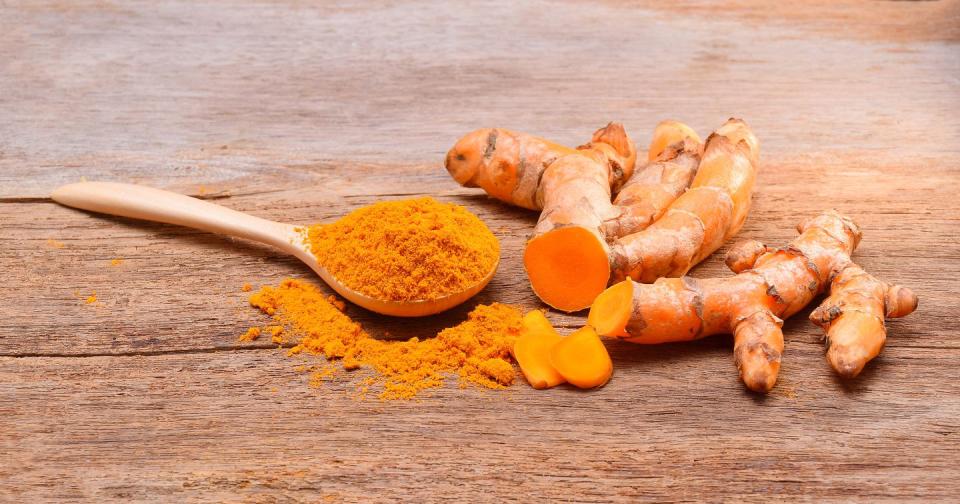
Turmeric
Curcumin, the bright yellow chemical in turmeric, has some solid research behind it. “It plays a role in metabolic and cell functions and impacts more than 100 molecular pathways,” says Nolan Cohn. Curcumin has a whole-body, inflammation-reducing response, she notes. Some studies find it can play a role in managing inflammatory conditions, metabolic syndrome, anxiety, and even muscle soreness. However, your body has a hard time absorbing curcumin and there are no set guidelines for intake, notes Nolan Cohn.
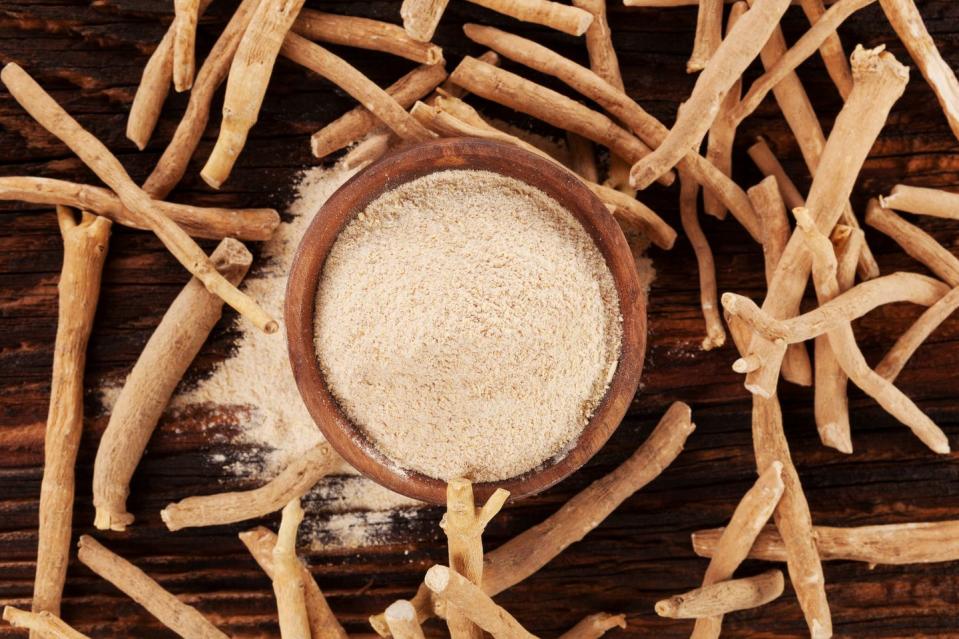
Ashwagandha
The ashwagandha plant’s root and flower have been used for medicinal properties for years. “Ashwagandha can help to give you more energy, while also supporting restorative sleep,” says Robin Foroutan, RDN, an integrative medicine dietitian based in New York. “It helps the body balance cortisol levels.” Beyond energy, it’s also used for inflammation reduction, says Nolan Cohn. The National Institutes for Health notes that 300 milligrams of the adaptogen twice a day after food for two months is possibly effective for stress relief.
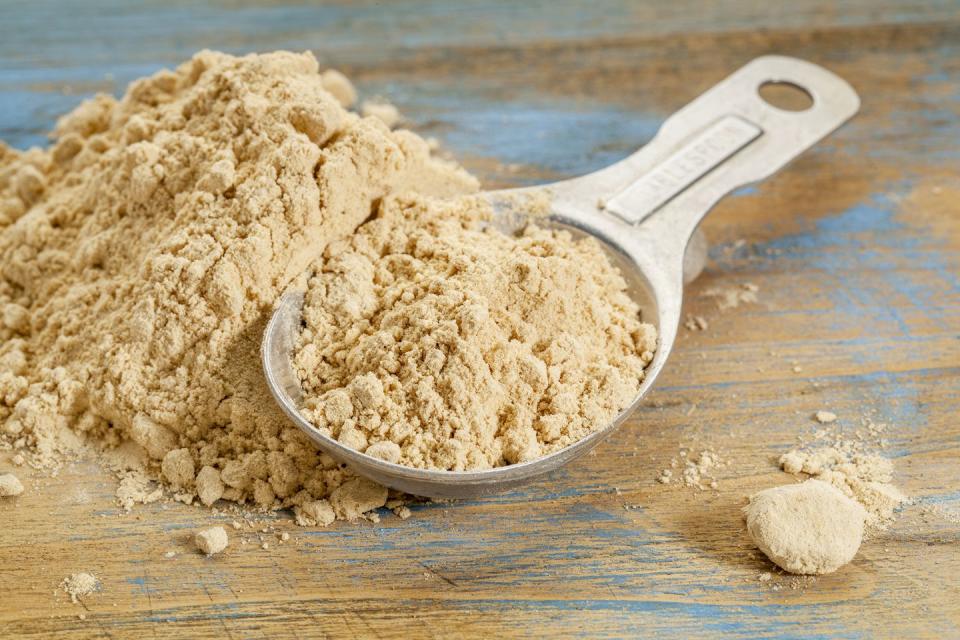
Maca Root
This Peruvian root is touted for its ability to increase libido, balance hormones, and boost energy-but before you get too excited, research has had a difficult time solidifying the benefits of maca powder, and the adaptogen contains substances that may interfere with thyroid function. One thing it does have: lots of nutrients, like vitamin C, copper, potassium, iron, and compounds called anthocyanins, which have been shown to be protective against certain chronic diseases.
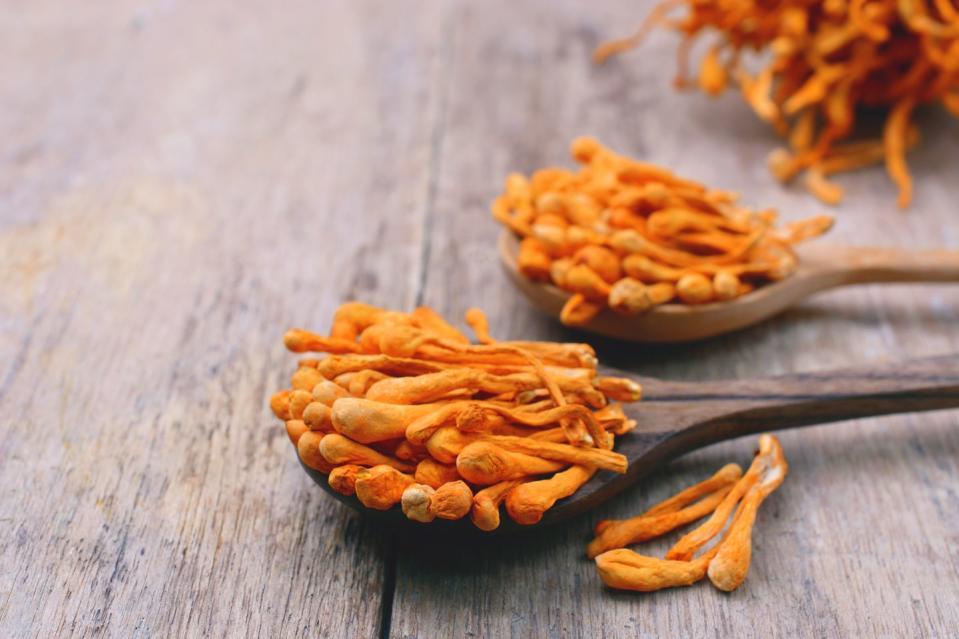
Cordyceps
Mushroom coffee has seen a boost in popularity, thanks to the health halo surrounding the shrooms themselves. Companies like Four Sigmatic promise their brews will benefit immunity, energy, and athletic performance, thanks to the various varieties of powdered mushrooms in their blends. One small pilot study did find a promising link between cordyceps mushrooms and athletic performance, but participants downed concentrated amounts-1,000 milligrams, or way more than you would find in a cup of mushroom coffee.

Ginseng
Ginseng has been used to help regulate sex hormones, fertility, and hormonal functions, though Nolan Cohn notes research on the adaptogen is limited. One 2015 review of aphrodisiac foods published in Sexual Medicine Reviews concluded that research surrounding red ginseng specifically is inconclusive and taking it daily may lead to health problems (like headaches or blood pressure issues) if taken alongside prescription medications.
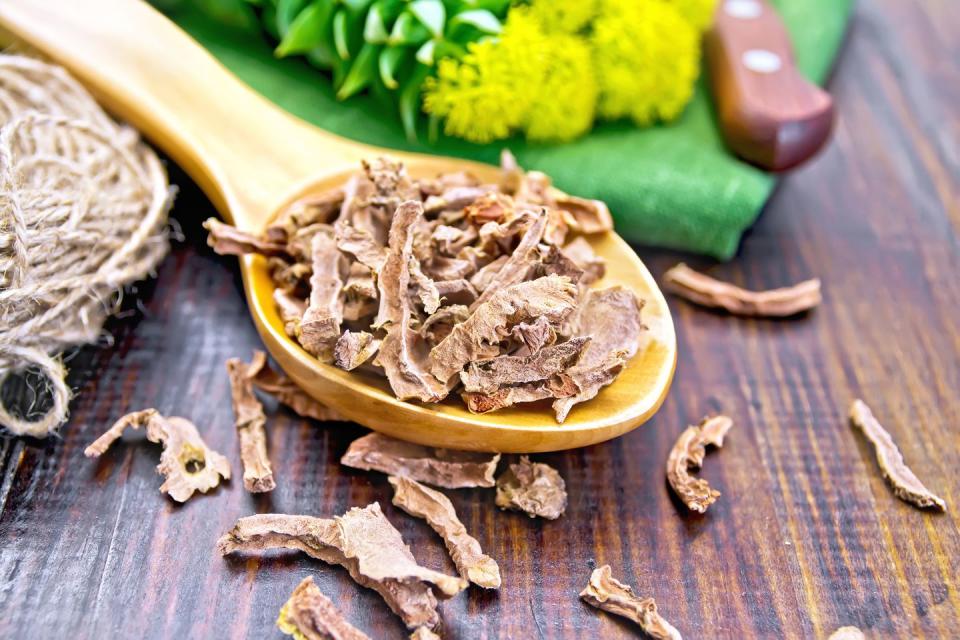
Rhodiola
This Arctic root could help balance brain chemicals such as dopamine and serotonin, preventing “burn out,” says Foroutan. And while there is some research on it, other studies have found mixed results on its ability to fight fatigue.
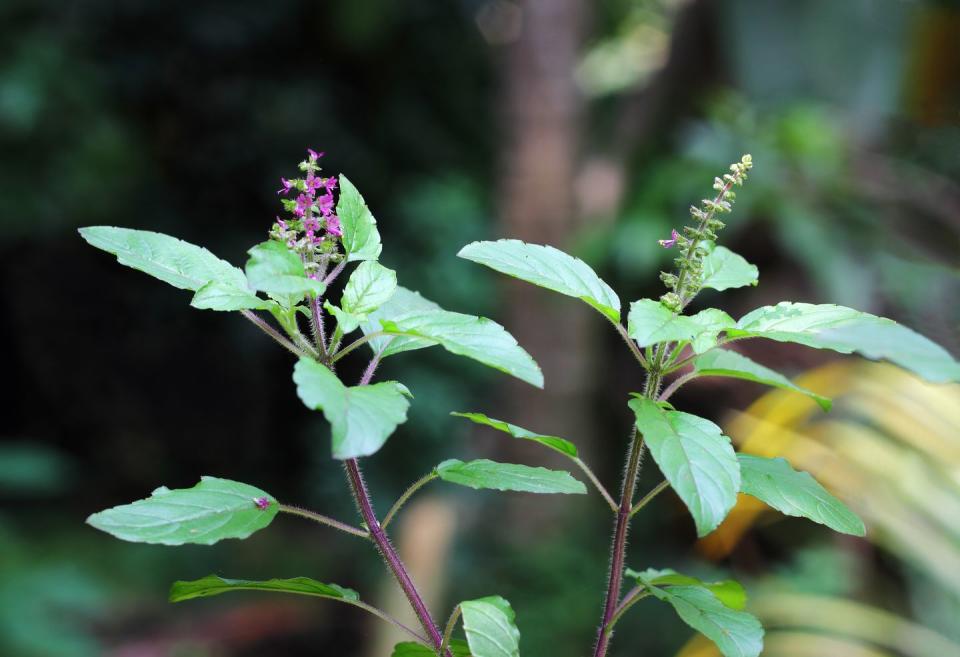
Holy Basil (Tulsi)
Anti-inflammatory and high in antioxidants, this healing herb in the basil family helps balance cortisol levels and improve mood, says Foroutan. Some research suggests it can be helpful in chronic diseases such as diabetes, metabolic syndrome, and stress (all circling back to inflammation), but human studies are lacking.
Should you take adaptogen supplements?
You can easily add some of these adaptogens into your diet in food form-say, drinking holy basil tea or using turmeric as a seasoning on chicken-which is usually a safe option. But if you decide to go the supplement route, do your homework. “It can be gimmicky,” admits Nolan Cohn.
When used in appropriate doses, adaptogens are generally safe, says Nolan Cohn. Negative side effects (GI issues, for example) usually only come from mega-dosing, which will vary depending on what you’re taking. Poor-quality supplements are also an issue, since low-grade products could have lead or other impurities in them, notes Foroutan.
Still, different adaptogens can have different drug interactions and might not be right for everyone. The NIH, for example, suggests ashwagandha might negatively impact pregnancies and interact with high-blood pressure medications. Talk to your doctor before you take any type of supplement-especially if you’re on any prescription drugs.
A general rule of thumb: Buy supplements that have been tested by a third party to ensure purity and quality, says Nolan Cohn. They’ll usually have a NSF label on them to signal that the contents of the bottle are accurately portrayed on the label. Then, dose appropriately. A professional can help you craft a nutritional plan that incorporates adaptogens in a healthy way.
“The recommendation across the board with supplements and herbs, especially when addressing something specific, is to start low and go slow,” says Nolan Cohn. To be safe, you should also always work with a medical professional, ideally a registered dietitian with a specialty in functional medicine.
('You Might Also Like',)

